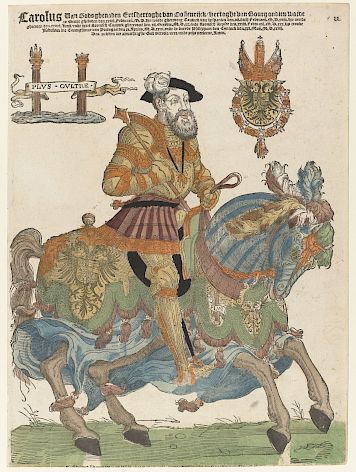Review—Iberian World Empires and the Globalization of Europe 1415–1668

Yun-Casalilla, Bartolomé. 2019. Iberian World Empires and the Globalization of Europe 1415–1668. Palgrave Studies in Comparative Global History. Singapore: Palgrave-Macmillan.
Reviewed by Nicholas Sy
Was Iberia a peninsula of absolutist monarchs and corrupt and inefficient institutions? Was its early modern decline rooted in its own culture? Bartolomé Yun-Casalilla contests these portrayals in his latest book on Iberian world empires. He shows that these empires, rather than absolutist, were not only decentralized but also eager to alienate “royal patrimony, state structures, and royal sovereignty” in their effort to mobilize resources. Practices that looked corrupt or cultural were part and parcel of their rational attempts to externalize costs. The nobility were encouraged to convert loyalty and economic capital into political and social capital. When coupled with the peninsula’s global expansion, this strategy not only raised funds, but also guaranteed internal stability, allowing elite families outlets for their ambitions. An influx of American silver through these empires, moreover, helped European states to stabilize their currencies and their commercial networks. Iberian military spending fueled international commerce. Europe’s economic success was, in other words, built on Iberia’s expansion.
While the author acknowledges that these strategies may have later caused imperial decline, he reminds readers that they initially contributed to the empire’s growth. The author admits that Iberian institutions were not particularly positive for economic development; but, he argues that that was typical for the time, and that it is anachronistic to weigh the value of these institutions by contrasting them with the economic successes of much later English and Dutch institutions. From the vantage point of the early modern era, the Iberian empires were in fact a milestone whose innovations facilitated the creation of the later English and Dutch empires.
Yun-Casalilla is best known for his work on Castile’s early modern transition to capitalism. Iberian World Empires builds on this scholarship and on much of his previous work, while relying mainly on secondary sources. It is a fascinating work, especially if one is interested in the simultaneously disjointed and intertwined political economies of the composite monarchy. On the one hand, its imperial protagonist engaged in separate “conflictive pacts” with the nobilities of its dispersed polities. On the other hand, it used credit, borrowed against taxation, to overcome local restrictions against the use of funds from one polity for the priorities of another. And, around it, noble families rationally used their cross-border kinship networks to diversify and to reconvert capital from different domains of life, and from different domains of the empire, for their self-perpetuation.
The book has its share of limitations. Although it was published as the second book in Palgrave-Macmillan’s series: “Studies in Comparative Global History,” Iberian World Empires spends almost all its time on Western Europe. It describes the Americas as a source of silver, a source of offices to hand out in patronage, and a venue for the nobility’s need for social reproduction. No airtime, however, is given to how innovations in the colonies contributed to institutional developments in the peninsula—the focus of much recent research in the global histories of science and law. The Asian and African reaches of the Iberian empire are likewise not discussed. Further, indigenous colonial subjects are almost invisible. Europe’s cross-border entanglements and Iberia’s imperial expansion are important parts of the author’s work, but the global nature of these entanglements and of that expansion does not come across as a crucial part of his argument.
The author convincingly shows the problems lurking behind any attempt to use the modern nation-state as a framework to understand early modern composite monarchies. And in this way, his book is a useful response to the anachronistic assessments of Daron Acemoglu, Simon Johnson, and James Robinson, among others, on the association between Iberia’s political institutions and its lack of economic growth. Evaluated as a global history, however, Yun-Casalilla’s book does not escape eurocentrism’s long shadow.